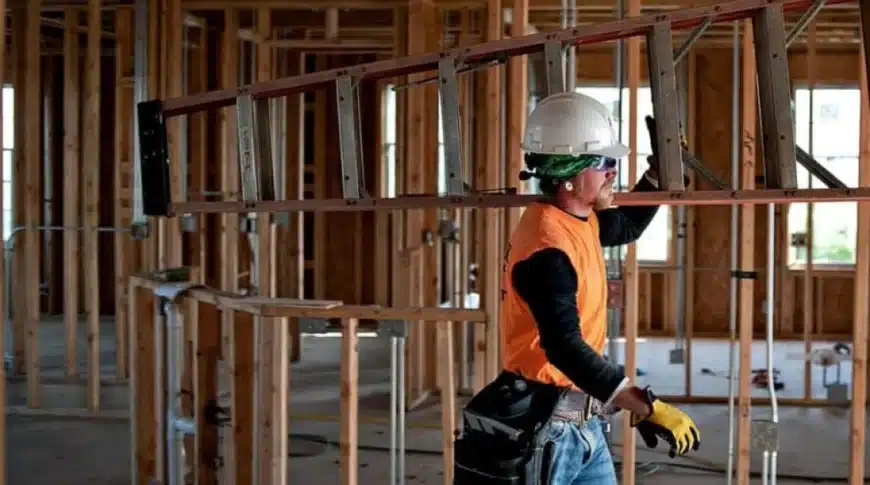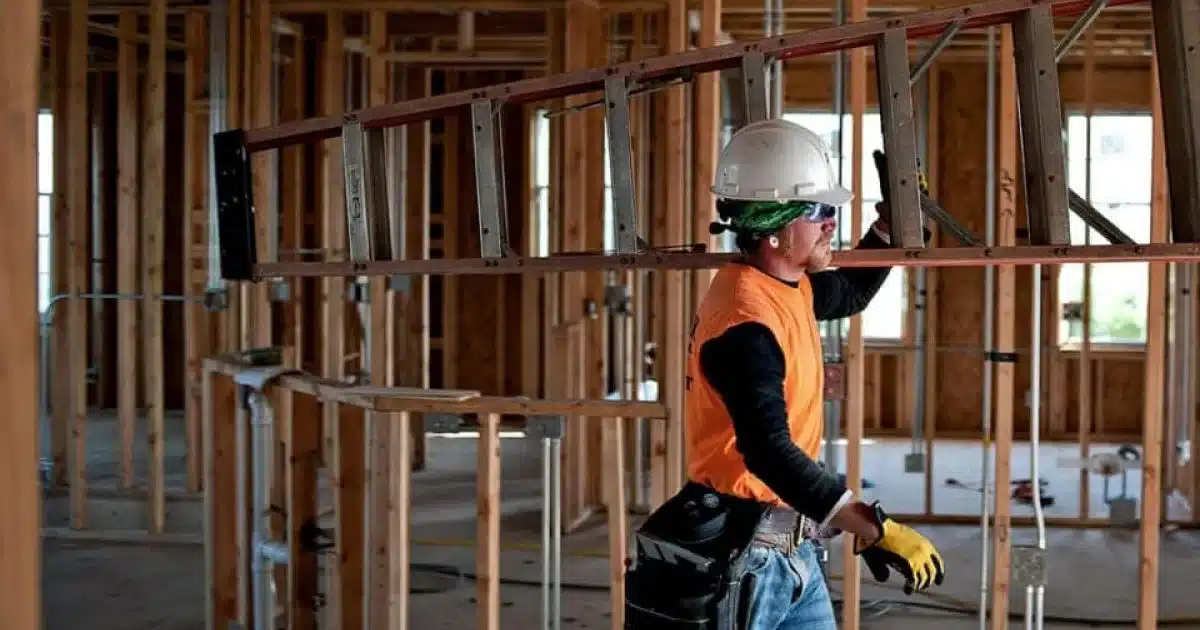
Embarking on a home improvement project can be both exciting and daunting. The question that often arises is whether DIY vs professional contractor is the right choice. While DIY projects offer the allure of cost savings and personal satisfaction, certain tasks demand the expertise and experience of a seasoned professional. This comprehensive guide will delve into the key factors to consider when deciding between DIY and hiring a contractor, ensuring you make an informed choice for your next home improvement endeavour.
Undertaking home improvement projects can be both exciting and overwhelming. Many homeowners find themselves wondering, “Should I take the DIY route or hire a contractor?” While DIY can save money and provide a sense of accomplishment, there are instances where hiring a professional is the smarter (and safer) decision. Here’s a guide to help you decide when to go DIY and when it’s best to call in a pro.
When to Go DIY
DIY projects can be rewarding if you have the necessary time, skills, and tools. These types of jobs allow you to put a personal touch on your home while saving labor costs.
1. Low-Risk Projects
If the task doesn’t involve structural changes, plumbing, or electrical systems, it’s often safe to DIY. Painting a room, assembling furniture, or installing shelves are great examples.
2. You Have Experience
If you’ve tackled similar projects before, or have the ability to follow detailed tutorials, DIY could be your go-to. For example, laying a simple backsplash or updating fixtures can be manageable for those with a bit of know-how.
3. You Want to Save Money
Labor costs often account for a large portion of a project’s budget. If you’re comfortable learning and experimenting, DIY can significantly cut costs—just be mindful of mistakes, as these could end up being expensive to fix.
4. Flexibility in Time
DIY gives you the freedom to work at your own pace, which can be ideal if the project isn’t urgent. However, be realistic about timelines to avoid unnecessary frustration.
When to Hire a Contractor
While DIY has its perks, there are certain projects that require expertise beyond the average homeowner’s skillset. Here are scenarios where hiring a professional is your best bet.
1. Complex or Dangerous Projects
Tasks involving gas lines, major electrical work, or plumbing should always be left to licensed professionals. Safety is paramount, and mistakes in these areas can cause severe damage or even personal injury.
2. Jobs That Require Permits
Projects like building an extension, major remodels, or rewiring a home often need city permits and inspections. Contractors are familiar with the regulations and will ensure everything is up to code.
3. Structural Changes
Removing walls or altering the foundation can compromise your home’s integrity if not done correctly. A licensed contractor can evaluate the load-bearing structure and carry out the work safely.
4. Time-Sensitive Projects
If you have a tight timeline, hiring a contractor ensures the job gets done efficiently. Professionals often have teams and experience that allow them to finish projects faster than most DIYers.
5. High-End Finishes or Precision Work
If you’re looking for a flawless finish—whether it’s custom cabinetry or intricate tile work—professionals are your best option. They have the experience, tools, and techniques to achieve high-quality results.
Key Considerations Before Deciding
- Budget: Are you prepared for unexpected expenses?
- Skill Level: Be honest about your abilities and the learning curve involved.
- Tools: Do you have access to the necessary tools? Buying new equipment may offset any savings from DIY.
- Time Commitment: Are you willing to dedicate the time required?
- Risks: What’s the worst-case scenario if things go wrong?
DIY and Professional Hybrid Projects
You don’t always have to choose between DIY and a contractor. Some projects work well with a hybrid approach—handling parts of the job yourself while bringing in a professional for specific tasks. For example, you could demolish a wall yourself and hire a contractor to handle the electrical and drywall work.

DIY vs Professional: Pros and Cons
1. Skill Level and Experience
One of the primary determinants in choosing between DIY and hiring a contractor is your skill level and experience. Simple tasks like painting or installing shelves may be well within the capabilities of a DIY enthusiast.
However, complex projects involving plumbing, electrical work, or structural modifications necessitate specialized knowledge and skills. Attempting such tasks without adequate expertise can lead to costly mistakes, safety hazards, and potential damage to your property. If you lack the necessary skills or experience, it’s advisable to hire a qualified contractor to ensure the project is executed safely and effectively.
2. Project Complexity and Scope
The complexity and scope of the project play a crucial role in determining whether to hire a contractor. Large-scale renovations, additions, or major remodels often involve intricate planning, coordination of multiple trades, and adherence to building codes and regulations. Managing such projects can be overwhelming for a DIYer, potentially leading to delays, budget overruns, and subpar results. A professional contractor possesses the expertise and resources to handle complex projects efficiently, ensuring timely completion and adherence to industry standards.
3. Time Constraints and Availability
Time constraints and availability are important factors to consider when deciding between DIY and hiring a contractor. DIY projects can be time-consuming, especially for individuals with limited free time or those juggling multiple commitments.
Hiring a contractor allows you to delegate the work, freeing up your time for other priorities. Additionally, contractors often have access to a team of skilled workers, enabling them to complete projects faster than a DIYer working alone. If you have a tight deadline or limited availability, hiring a home improvement professional may be the more practical option.
4. Budget Considerations
Budget considerations are a major factor in any home improvement project.
DIY projects can be more cost-effective in terms of labor costs, as you’re essentially doing the work yourself. However, it’s crucial to factor in the cost of tools, materials, and potential mistakes that may require professional intervention. Hiring a contractor includes labor costs, but they often have access to trade discounts on materials and can provide accurate cost estimates upfront. If you have a limited budget, DIY may seem appealing, but be sure to weigh the potential risks and hidden costs against the peace of mind and expertise offered by a professional contractor.
5. Permits and Regulations
Many home improvement projects require permits and adherence to local building codes and regulations.
Navigating the permit process can be complex and time-consuming, especially for DIYers unfamiliar with the requirements. A professional contractor is well-versed in local regulations and can ensure your project complies with all necessary permits and codes. Failure to obtain permits or adhere to regulations can result in fines, delays, and even forced removal of completed work. If your project involves structural changes, electrical work, plumbing, or major renovations, hiring a contractor with experience in obtaining permits and adhering to regulations is crucial.
6. Safety Concerns
Safety should be a top priority in any home improvement project. Certain tasks, such as working with electricity, plumbing, or hazardous materials, carry inherent risks.
DIYers attempting such tasks without proper training and safety precautions can endanger themselves and others. Professional contractors are equipped with the necessary safety gear and knowledge to mitigate risks and ensure a safe working environment. If your project involves potential safety hazards, it’s best to leave it to the professionals to avoid accidents and injuries.
7. Warranty and Liability
Hiring a professional contractor often comes with the benefit of warranties and liability coverage. Reputable contractors stand behind their work and offer warranties on materials and workmanship.
In the event of any defects or issues arising after project completion, the contractor is responsible for rectifying the problem. Additionally, contractors carry liability insurance that protects you in case of accidents or damage to your property during the project. DIYers, on the other hand, assume full responsibility for any mistakes or mishaps that may occur. If you value peace of mind and protection against unforeseen issues, hiring a contractor with warranty and liability coverage is a wise choice.
Conclusion
Deciding between DIY and hiring a contractor involves careful consideration of various factors.
Skill level, project complexity, time constraints, budget, permits, safety, and warranty are all crucial aspects to weigh before making a decision. While DIY projects can offer cost savings and personal satisfaction, certain tasks demand the expertise and experience of a professional contractor to ensure safety, quality, and adherence to regulations. By assessing your project needs and capabilities objectively, you can make an informed choice that aligns with your goals and budget, leading to a successful and stress-free home improvement experience.
